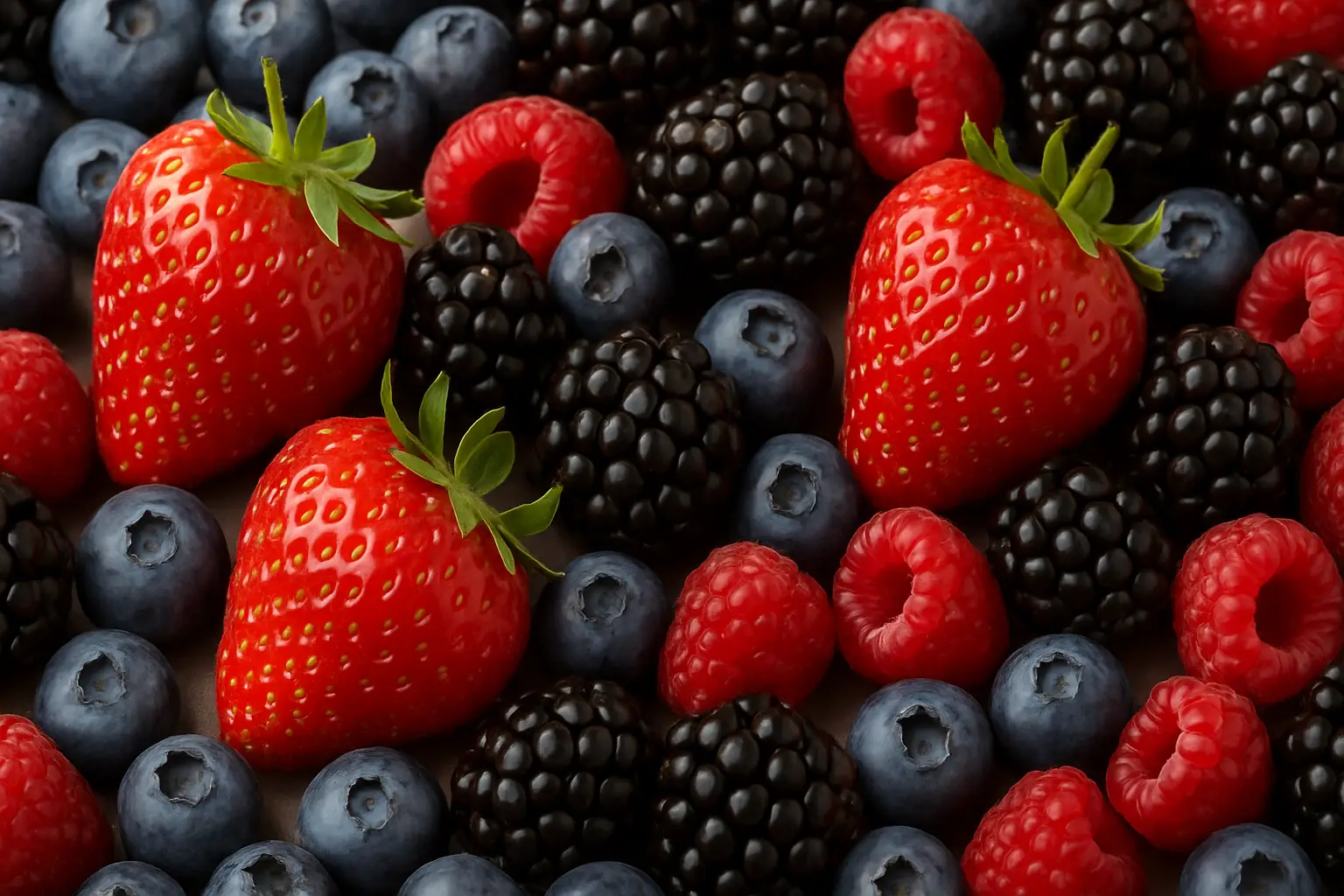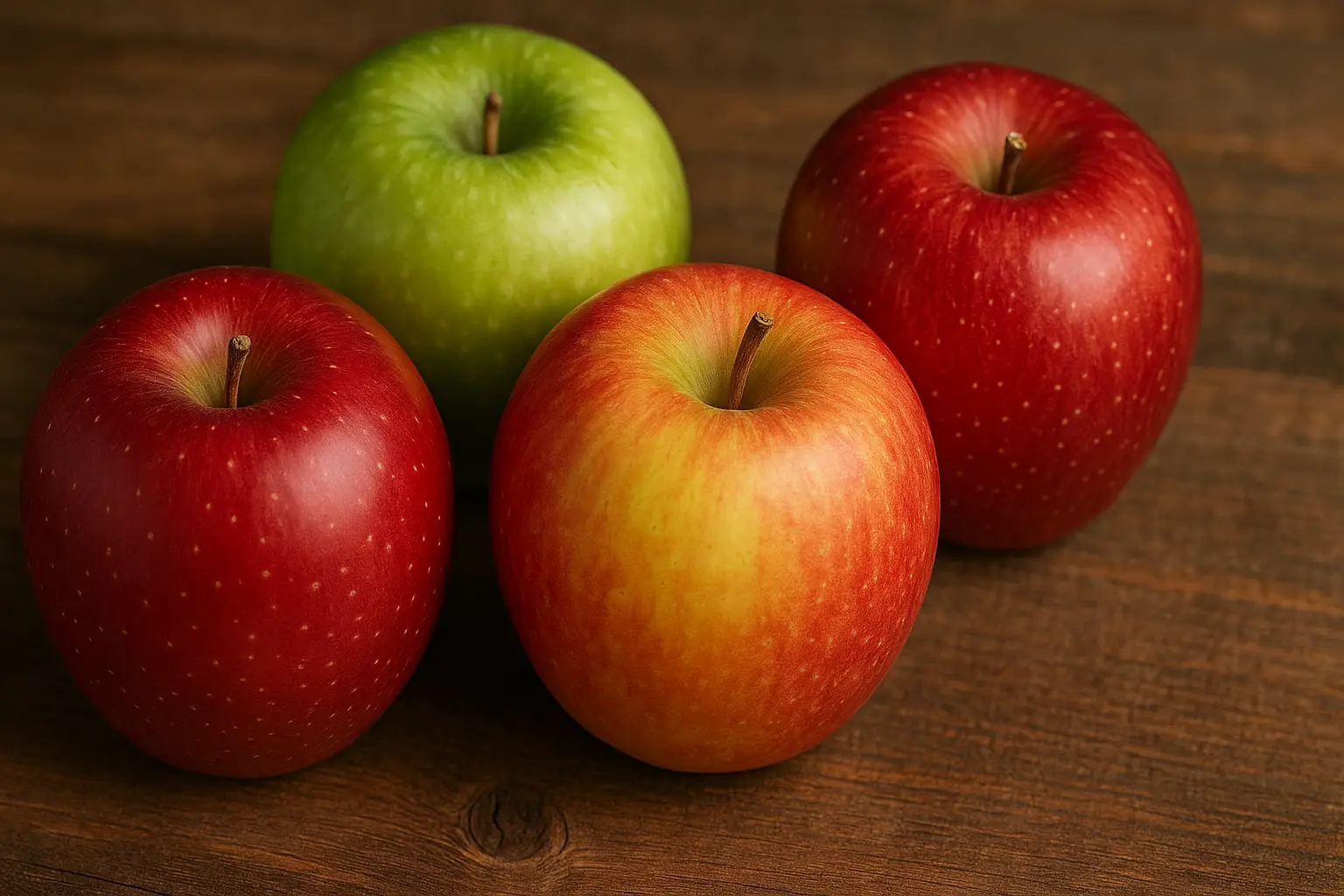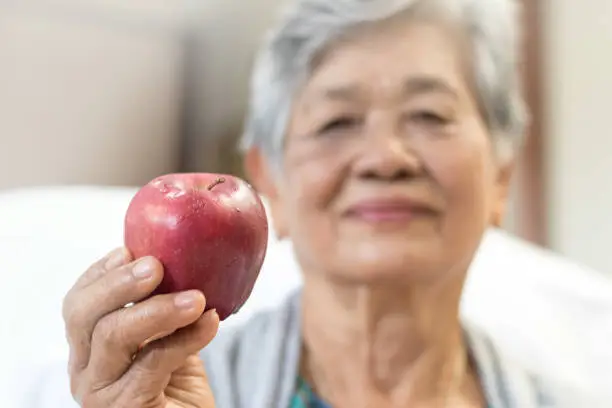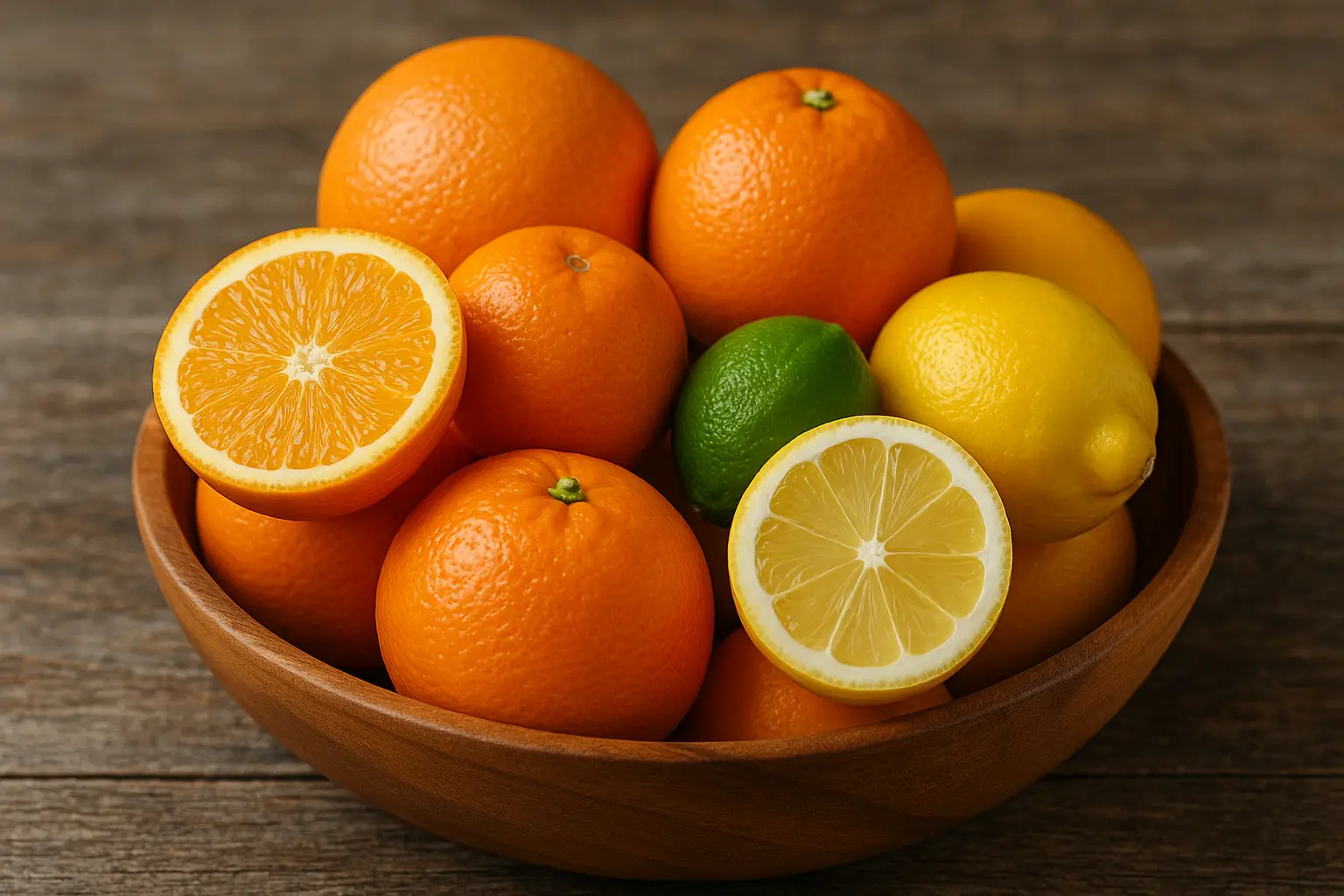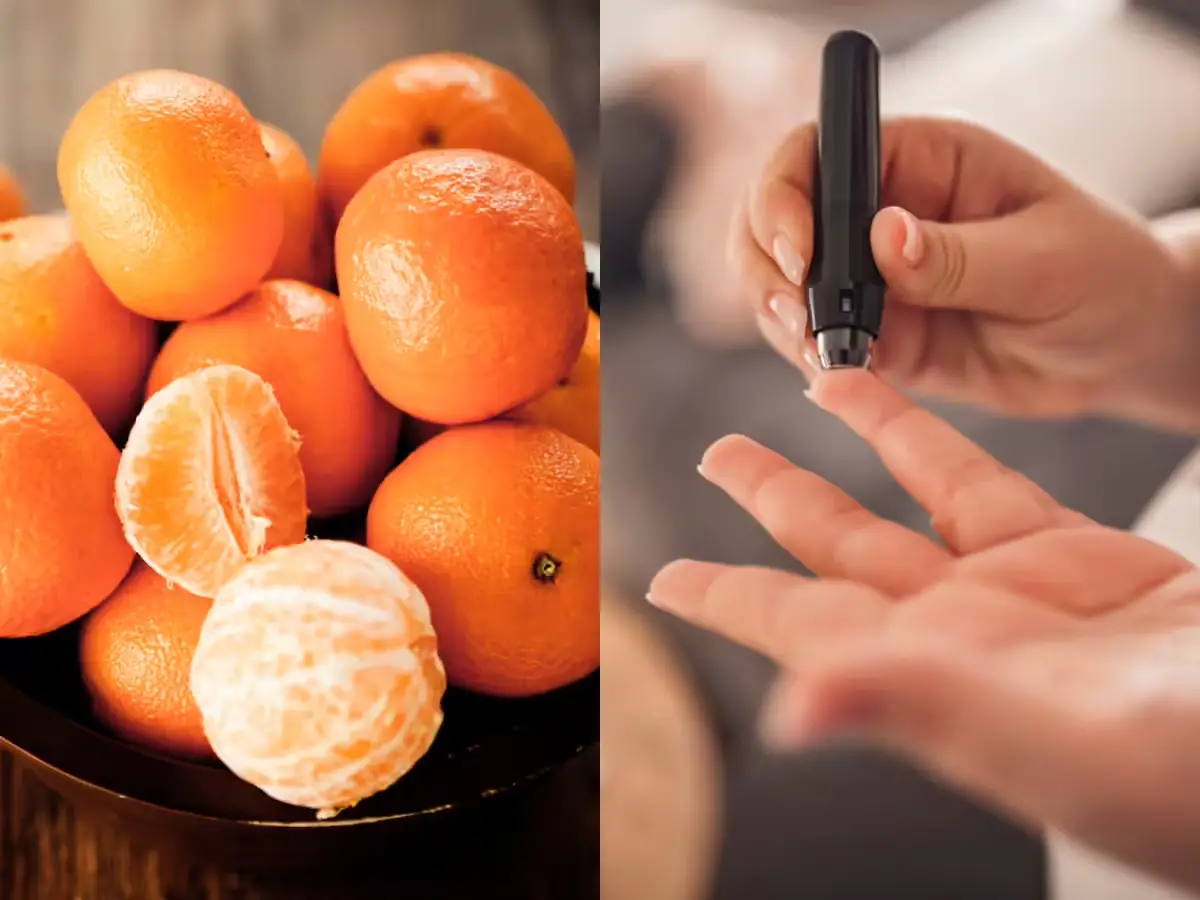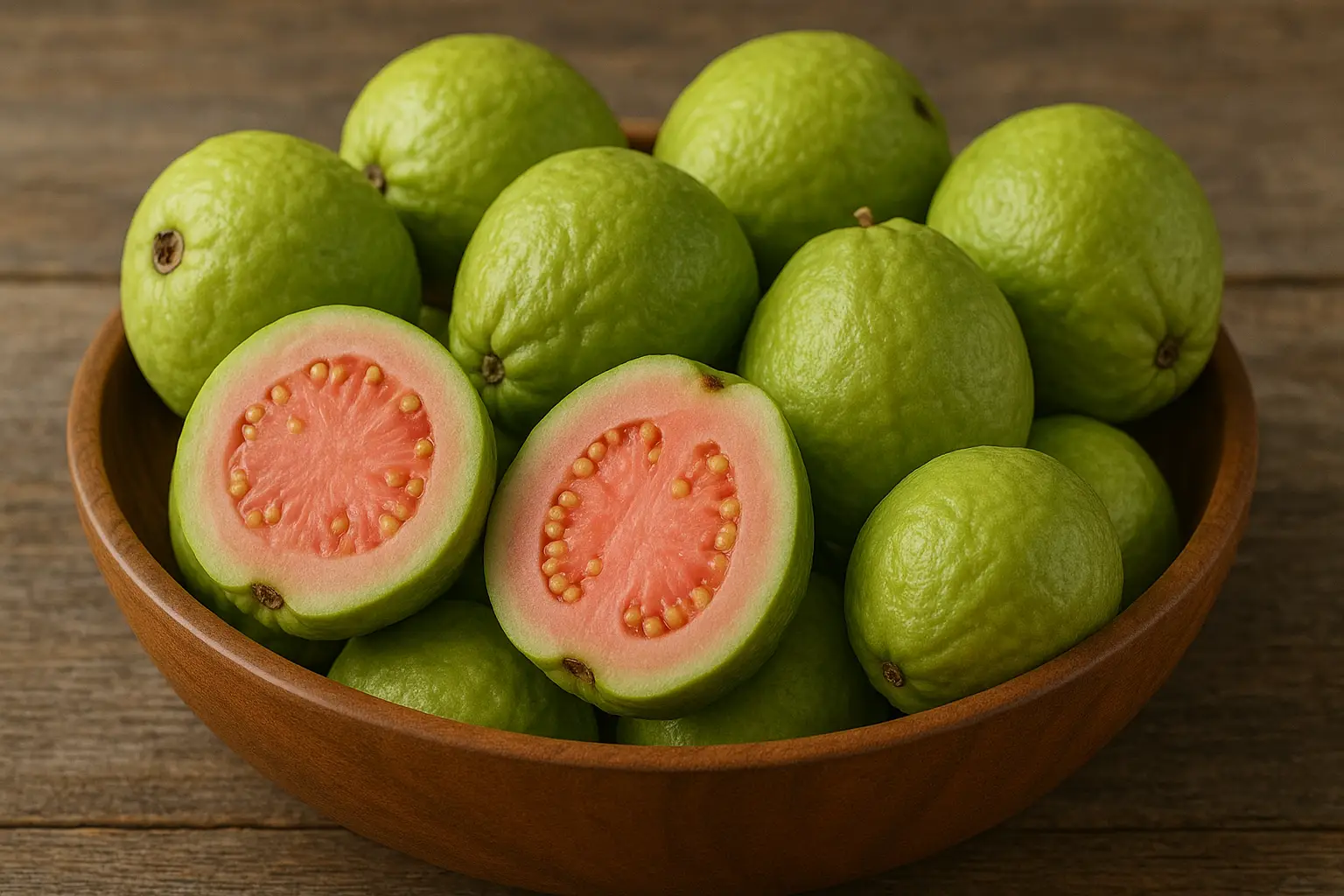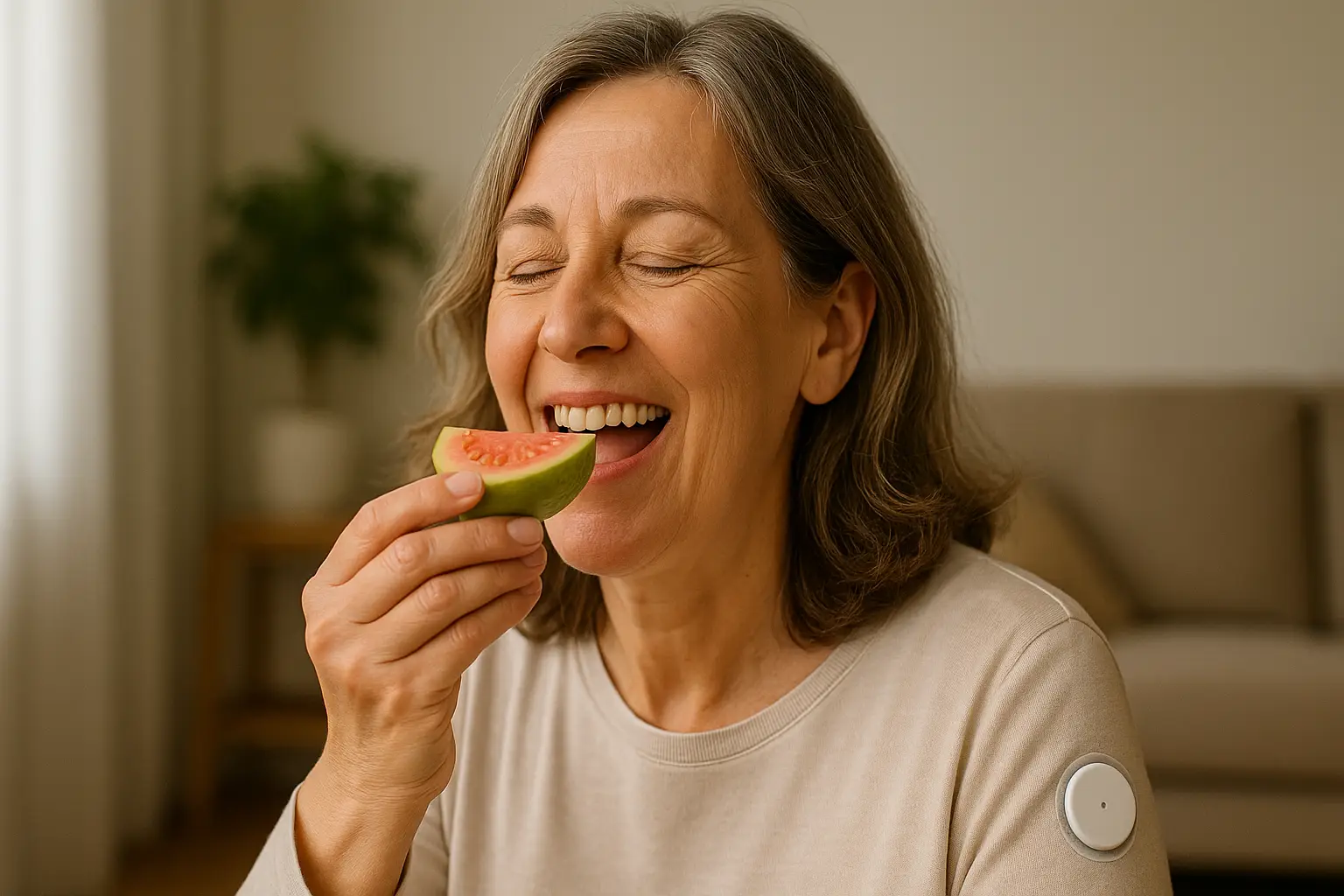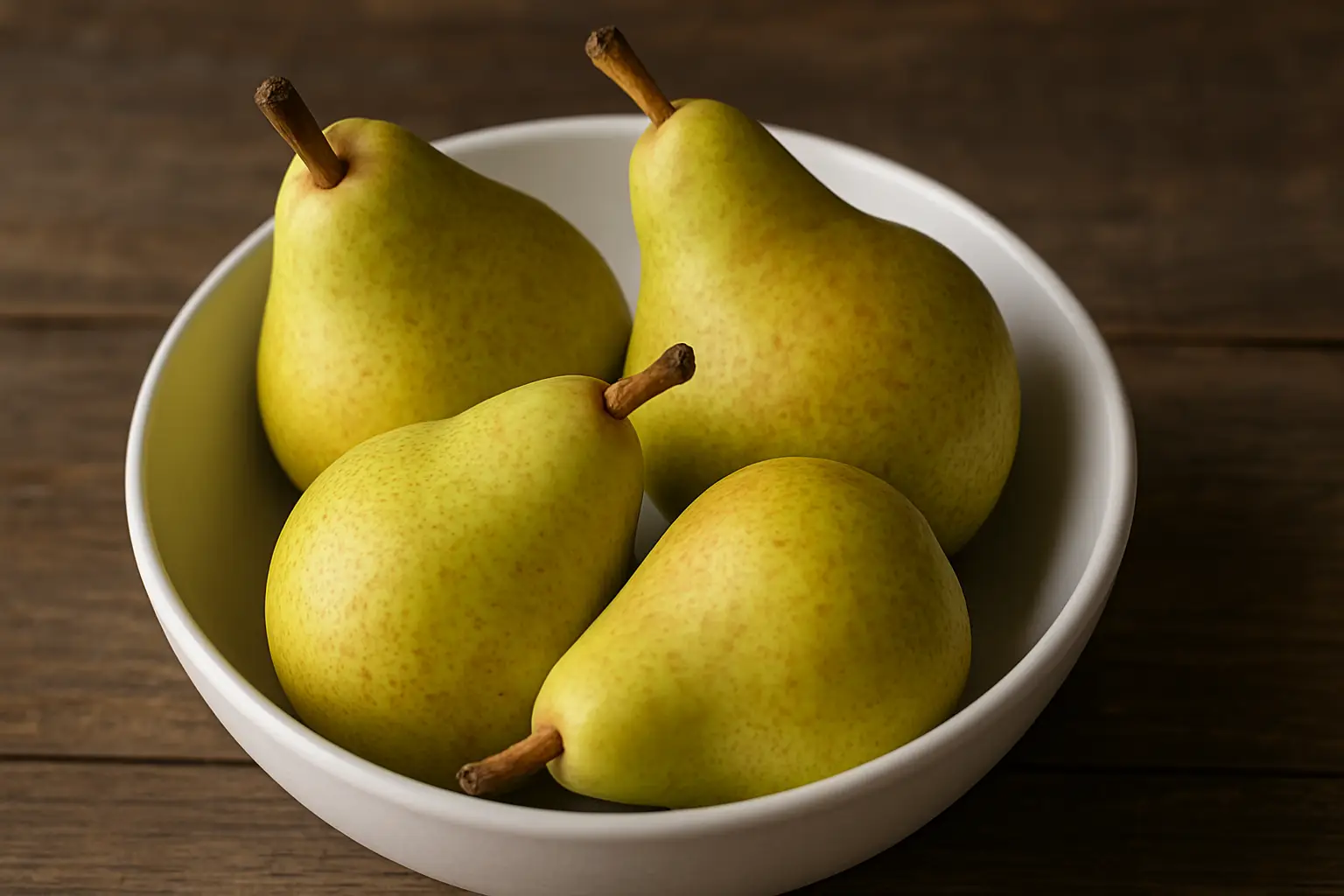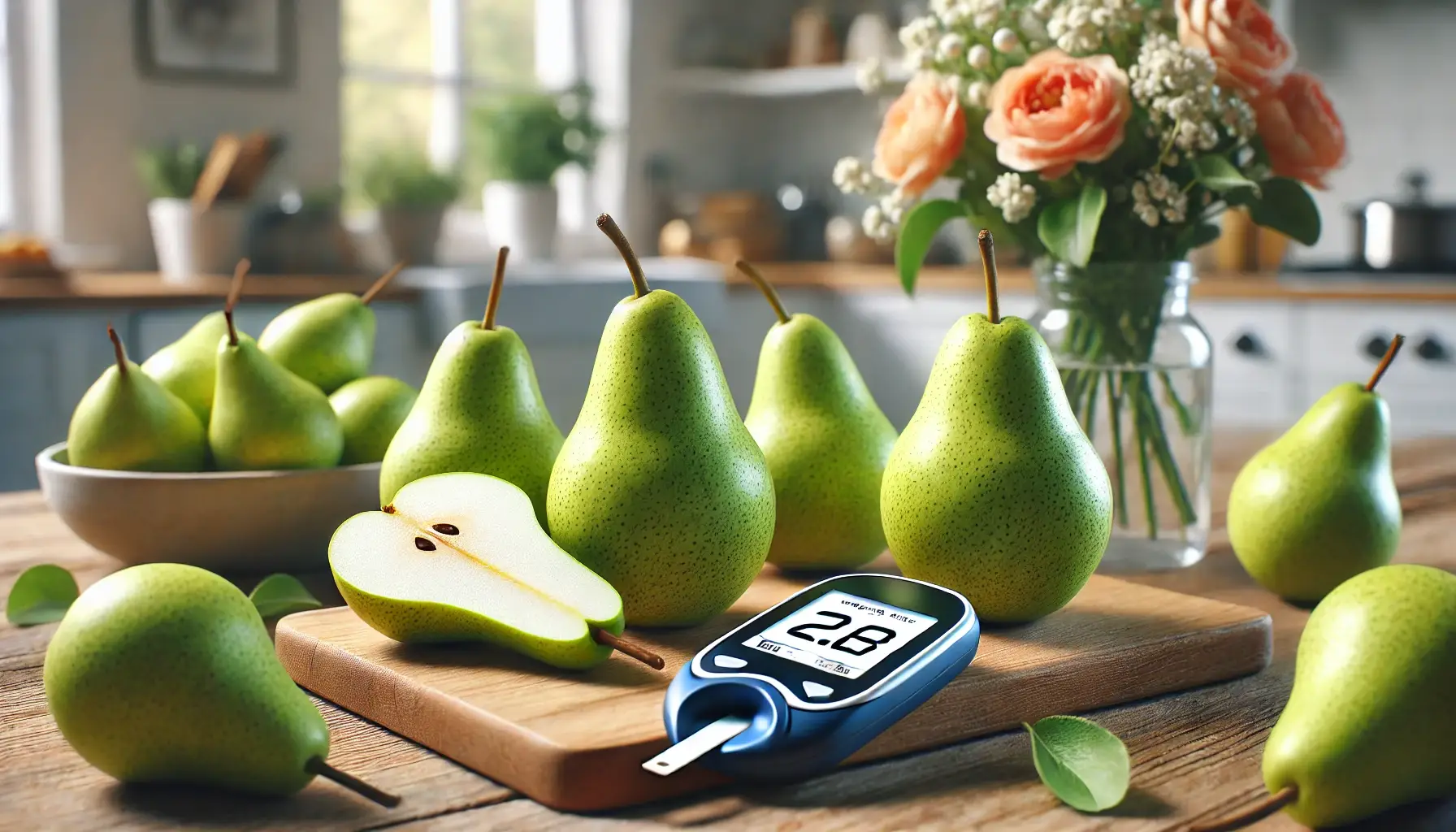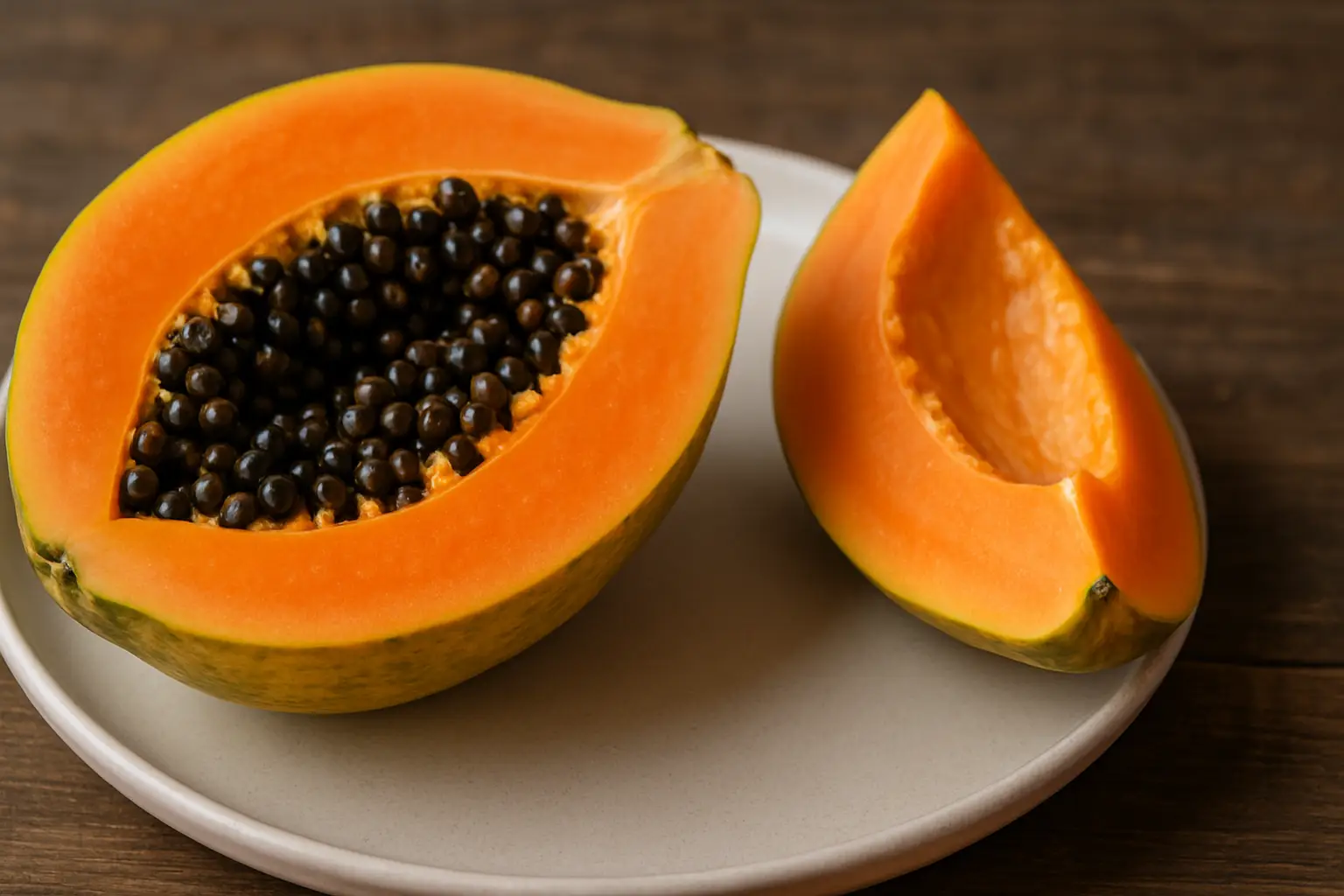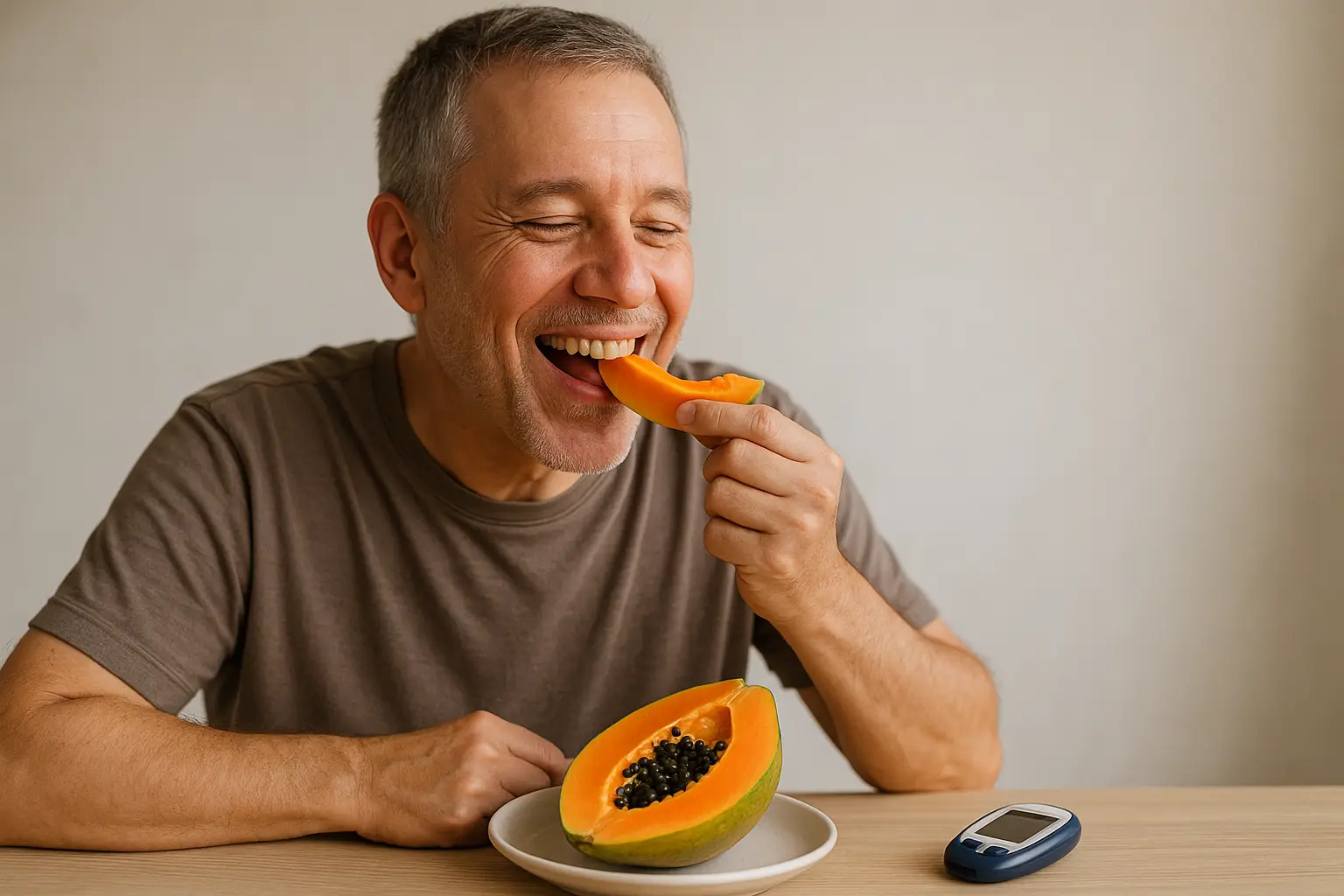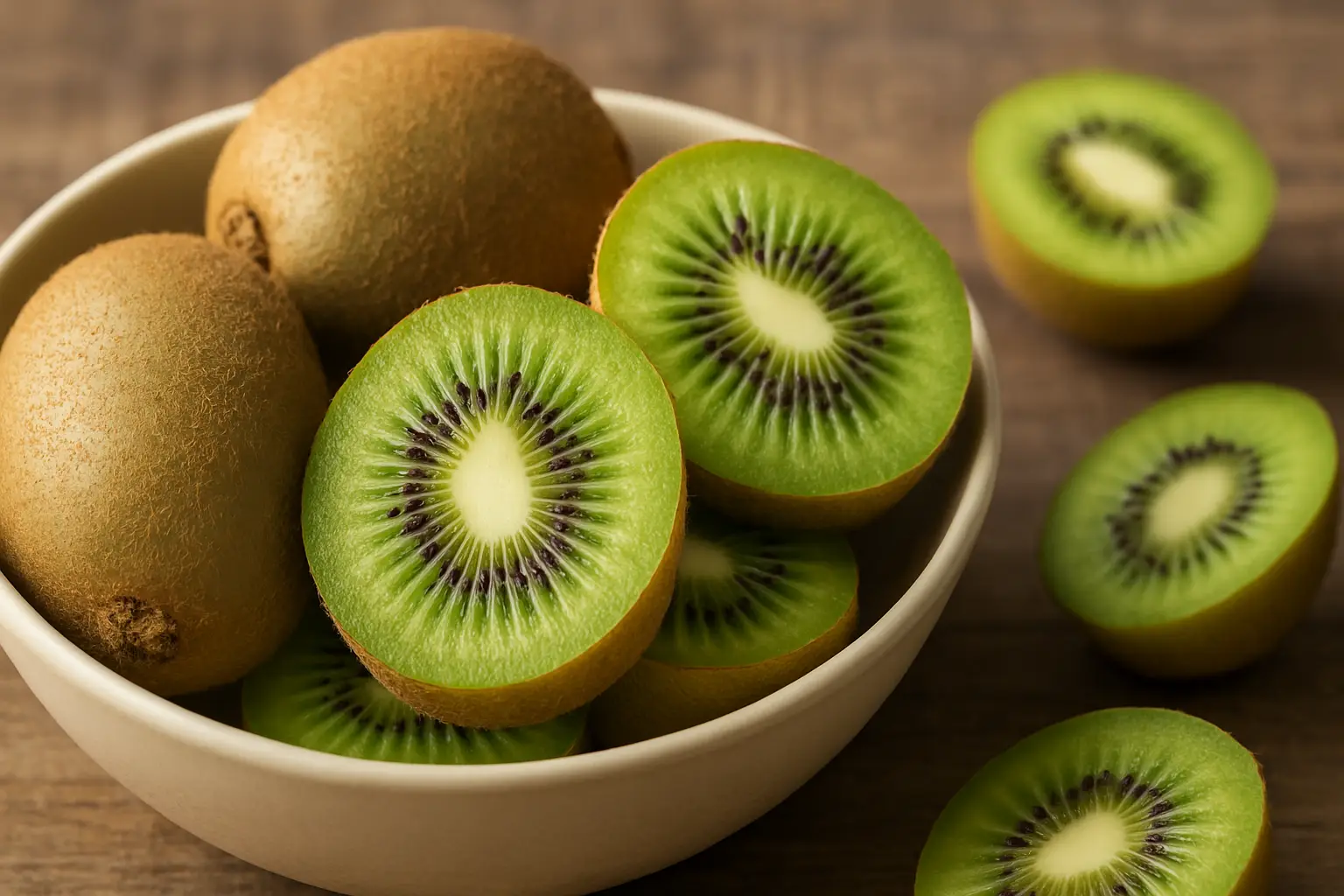Best Fruits for Diabetic People to Control Blood Sugar Naturally
Published On : 26th Sep 2025
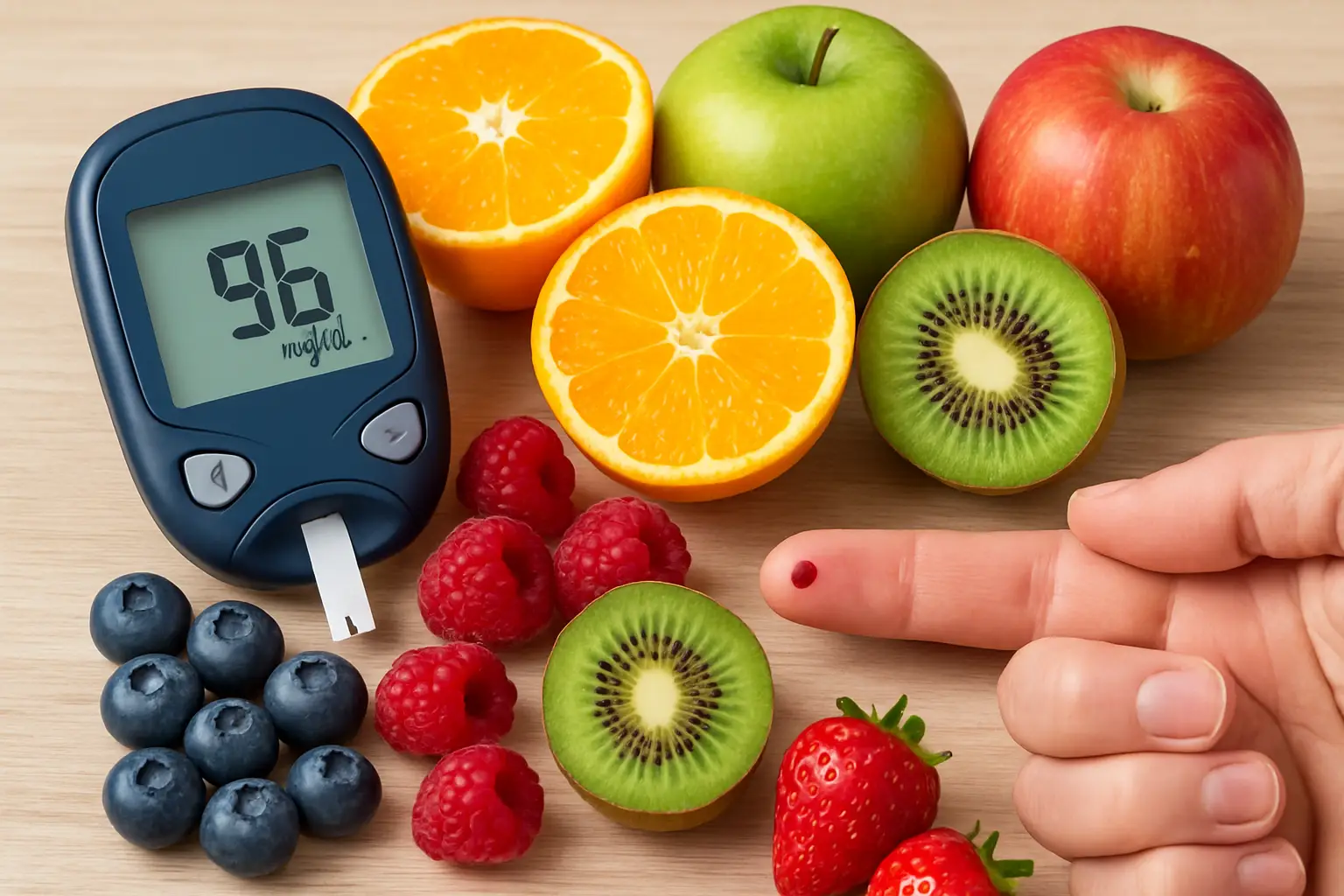
Managing diabetes doesn’t mean you need to give up on enjoying fruits altogether. In fact, when chosen wisely, fruits can be a powerful part of a diabetes-friendly diet. They are packed with essential vitamins, minerals, antioxidants, and dietary fiber that not only satisfy sweet cravings but also support blood sugar control.
The key is to focus on low to moderate glycemic index (GI) fruits, which release sugar slowly into the bloodstream, preventing sudden spikes. This guide will explore some best fruits for diabetic people, how to include them safely, and the right strategies to enjoy them while maintaining healthy glucose levels.
Why Fruits Are Important for Diabetics
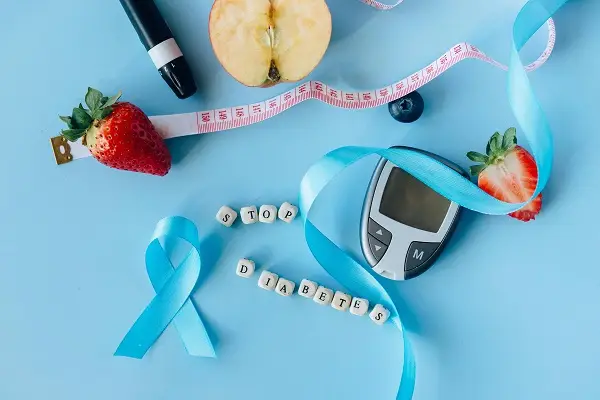
People with diabetes often fear eating fruits due to their natural sugar content. However, unlike refined sugar, fructose (the sugar in fruits) is digested more slowly, especially when paired with fiber. Fruits also contain phytonutrients and antioxidants that protect against inflammation and improve overall health.
Key benefits of fruits for diabetics include:
- 🍎 Rich in Fiber: Slows sugar absorption and prevents sudden spikes.
- 🥭 Packed with Antioxidants: Reduces inflammation and protects against diabetes-related complications.
- 🍊 Low in Calories: Supports weight management, which is crucial for diabetes control.
- 🍊 Essential Vitamins & Minerals: Improves immunity and energy levels.
- 💧 High Water Content: Fruits with high water content support weight management and satiety.
The secret is to choose wisely and control portion sizes.
Pro Tip: Choose low-GI (Glycemic Index) fruits for better blood sugar control.
7 Best Fruits for Diabetic People
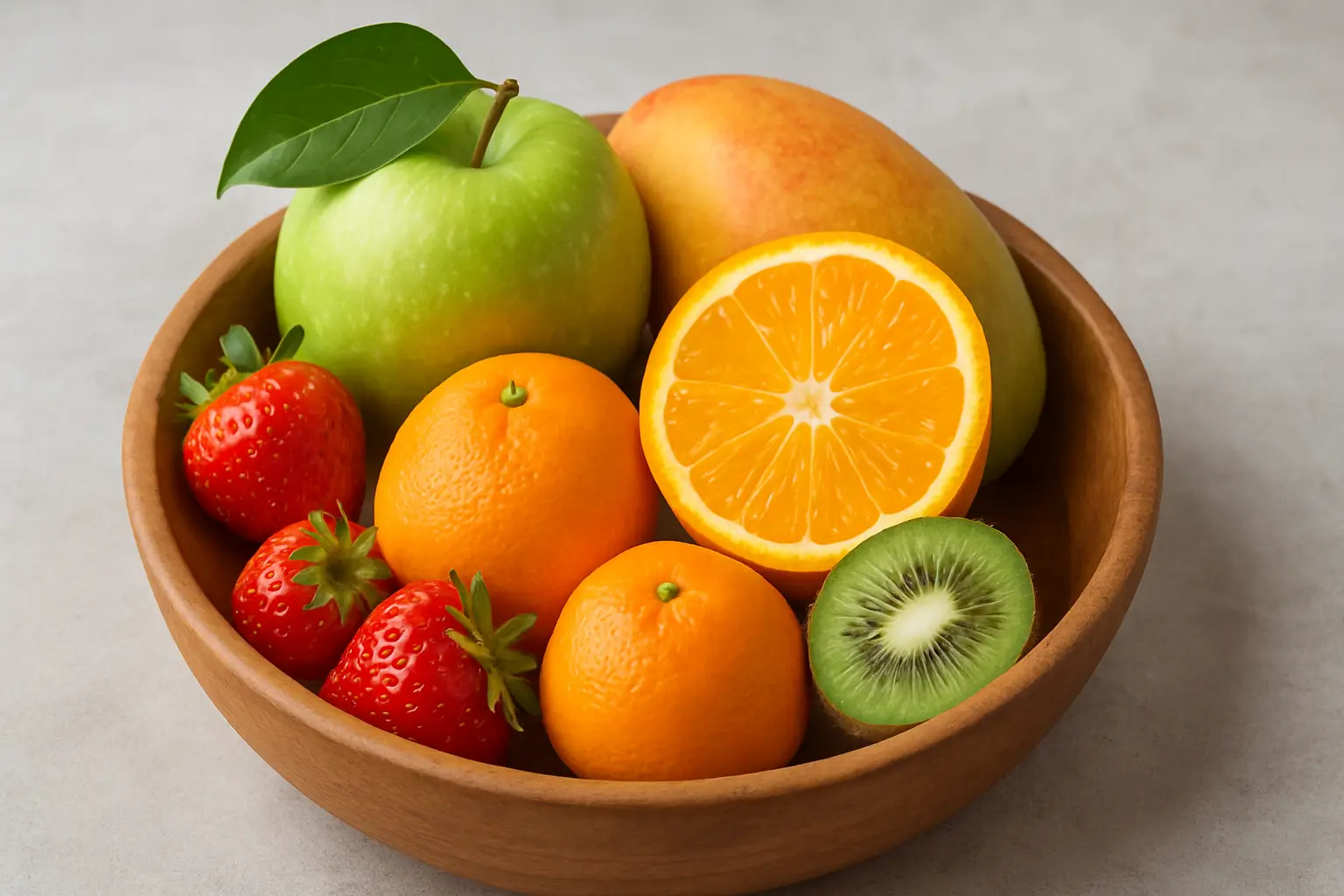
- Berries (Blueberries, Strawberries, Blackberries, Raspberries) : Berries are among the healthiest fruits for diabetics because they are low in sugar but high in fiber and antioxidants. Their vibrant colors are due to anthocyanins, powerful compounds that improve insulin sensitivity and protect against heart disease, which is a common diabetes complication.
Berries have a low glycemic index (GI) between 25–40, meaning they release sugar slowly into the bloodstream. Eating a handful of berries can satisfy your sweet tooth without causing sugar spikes.
Health Benefits:
- Rich in Vitamin C to boost immunity.
- High in fiber, which supports digestion and blood sugar control.
- May reduce the risk of inflammation-related conditions like neuropathy and retinopathy.
💡 Pro Tip: Mix a handful of fresh berries into Greek yogurt or sprinkle them on top of oatmeal for a diabetes-friendly breakfast or snack.
- Apples : “An apple a day keeps the doctor away” is especially true for diabetics. Apples are packed with soluble fiber, particularly pectin, which slows down sugar absorption and promotes healthy digestion. They are also a great source of Vitamin C and antioxidants.
With a GI score of around 36, apples are considered safe for diabetics when consumed in moderation. The fiber helps regulate blood sugar while keeping you fuller for longer, which aids in weight management.
Health Benefits:
- Reduces LDL (bad cholesterol), protecting the heart.
- Promotes satiety, helping to control appetite and calorie intake.
- Boosts immunity thanks to its vitamin and mineral content.
💡 Pro Tip: Eat apples with their skin on to maximize fiber intake and stabilize blood sugar levels.
- Oranges and Citrus Fruits : Citrus fruits like oranges, grapefruits, and lemons are rich in Vitamin C, antioxidants, and fiber, making them an excellent choice for people with diabetes. The fiber content in citrus fruits helps slow down glucose absorption, reducing sugar spikes after meals.
Oranges have a moderate GI score of 40–45, making them a good choice when eaten whole rather than juiced. Fruit juices, even natural ones, tend to lack fiber and can lead to quick sugar spikes.
Health Benefits:
- Strengthens immunity with high Vitamin C levels.
- Supports heart health by reducing cholesterol and improving blood circulation.
- Aids digestion and helps in weight management.
💡 Pro Tip: Include one whole orange or half a grapefruit in your mid-morning snack, but avoid adding sugar or salt.
- Guava : Guava is a superfruit for diabetics thanks to its low glycemic index of around 25 and its incredibly high Vitamin C content. It’s also packed with fiber, which helps control sugar levels and improve digestion.
Guava plays a role in improving insulin resistance, which is vital for managing Type 2 diabetes. It also has antioxidants that help reduce oxidative stress and protect the pancreas, which produces insulin.
Health Benefits:
- Helps in weight management by keeping you full longer.
- Improves digestive health with its high fiber content.
- Boosts immunity and protects against infections.
💡 Pro Tip: Eat fresh guava without any added salt, sugar, or seasoning to keep it diabetes-friendly.
- Pears : Pears are another low GI fruit, with a score of around 33. They are rich in soluble and insoluble fiber, making them excellent for blood sugar regulation and digestive health. Pears also provide potassium and Vitamin K, which support heart health.
The fiber content in pears helps prevent sugar spikes by slowing digestion. This makes them an excellent snack choice for diabetics looking for natural sweetness without a blood sugar surge.
Health Benefits:
- Improves gut health by feeding good bacteria.
- Supports weight loss by keeping you full longer.
- Reduces risk of heart disease, a common concern for diabetics.
💡 Pro Tip: Add sliced pears to salads or oatmeal for a refreshing and nutritious touch.
- Papaya : Papaya is a nutrient-rich tropical fruit known for its antioxidants and digestive benefits. While its GI score is moderate at around 60, it can still be consumed in controlled portions. Papaya contains compounds like flavonoids and Vitamin C, which reduce oxidative stress and inflammation in the body.
For diabetics, papaya helps improve digestion and metabolism, which can aid in better blood sugar management. Its fiber content also helps prevent sudden sugar spikes.
Health Benefits:
- Promotes eye health with its high Vitamin A content.
- Reduces inflammation and supports heart health.
- Aids in digestion with natural enzymes like papain.
💡 Pro Tip: Enjoy a small bowl of papaya as a mid-morning snack or add it to smoothies without extra sweeteners.
- Kiwi : Kiwi is a small but powerful fruit packed with Vitamin C, potassium, and dietary fiber. It has a moderate GI of around 50, making it a safe choice for diabetics when eaten in moderation.
The fiber in kiwi helps slow down sugar absorption, while its antioxidants promote better immune function and heart health. Kiwis are also low in calories, making them ideal for weight-conscious individuals with diabetes.
Health Benefits:
- Supports healthy blood pressure and heart health.
- Improves digestion and bowel movement regularity.
- Strengthens the immune system with high Vitamin C levels.
💡 Pro Tip: Pair sliced kiwi with unsweetened yogurt for a delicious, diabetes-friendly dessert.
How to Safely Include Fruits in a Diabetic Diet
Eating fruits is beneficial, but the way you include them in your diet matters. Here are some tips for safely enjoying fruits while managing blood sugar:
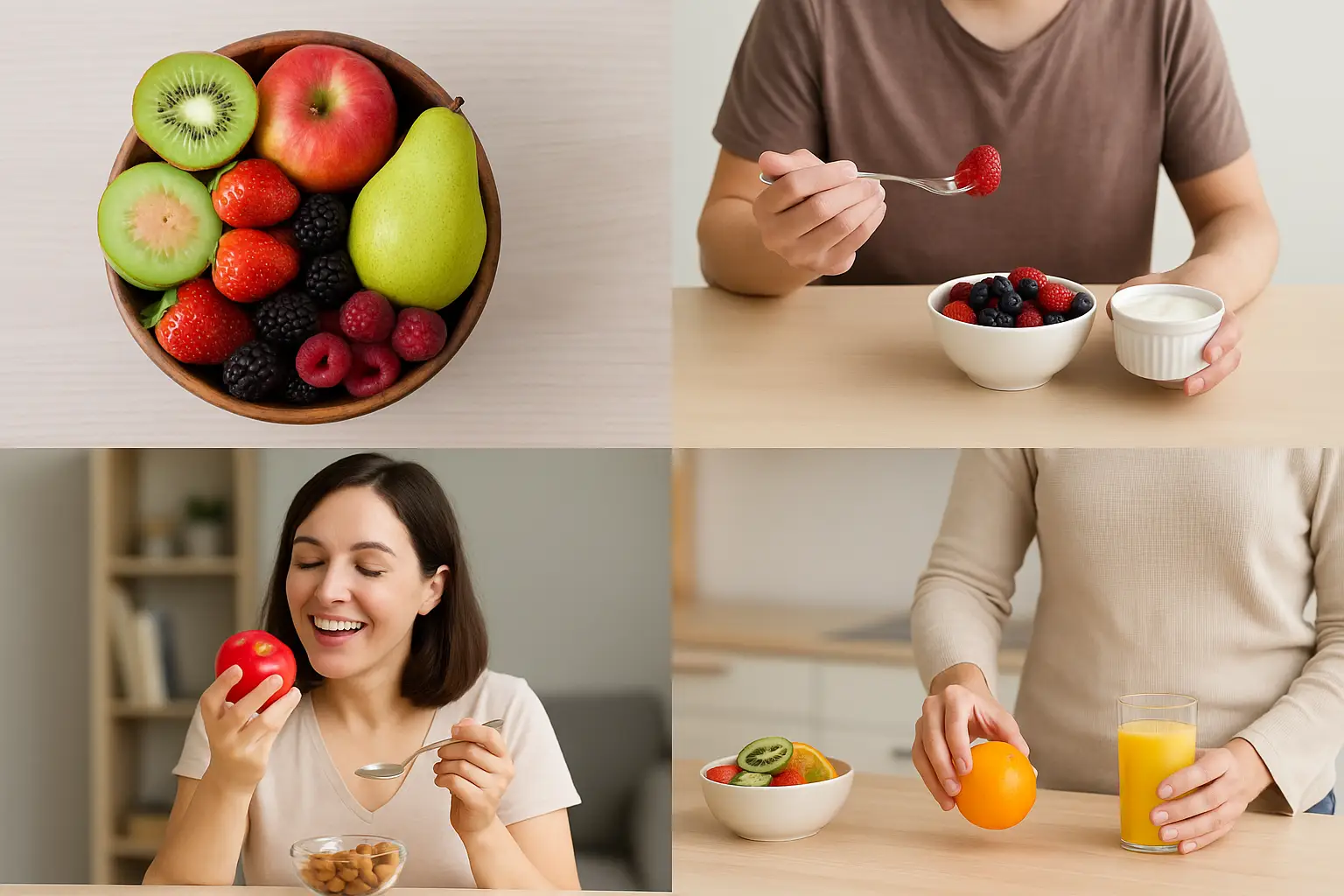
- Choose Low-GI Fruits First: Low-GI fruits like berries, apples, pears, and guava release sugar slowly into the bloodstream, helping you maintain stable glucose levels.
- Practice Portion Control: Even healthy fruits can cause sugar spikes if eaten in excess.
- Limit to 2–3 servings per day, where one serving is about ½ cup of sliced fruit or one small whole fruit.
- Pair Fruits with Protein or Healthy Fats: Combining fruits with proteins or healthy fats slows sugar absorption. Examples:
- Apple with almond butter
- Berries with Greek yogurt
- Guava with a handful of nuts
- Avoid Fruit Juices: Juices lack fiber and cause a rapid rise in blood sugar. Always choose whole fruits over juices or smoothies.
- Timing is Key: Consume fruits between meals, not right after heavy carbohydrate meals, to prevent sugar fluctuations.
Fruits to Limit or Avoid
Certain fruits are naturally high in sugar and should be consumed rarely or avoided:
- Ripe mangoes 🥭
- Grapes 🍇
- Bananas 🍌
- Pineapple 🍍
- Watermelon 🍉
Conclusion
Diabetes management doesn’t mean giving up on fruits altogether. By choosing low-GI, fiber-rich fruits and consuming them mindfully, you can enjoy natural sweetness while keeping your blood sugar levels stable. The best fruits for diabetics—berries, apples, citrus fruits, guava, pears, papaya, and kiwi—can become a vital part of your meal plan when eaten in moderation.
Pair these fruits with regular exercise and a balanced diet to maintain energy levels and overall well-being.
Frequently Asked Questions
Yes, but focus on low-GI fruits and practice portion control to avoid sugar spikes.
Berries, apples, and guava are known for their ability to stabilize or slightly lower blood sugar.
Bananas have a moderate to high GI and should only be consumed occasionally in small quantities.
Mid-morning or mid-evening is ideal, rather than directly after meals.
No, whole fruits are better as juices lack fiber and cause quick sugar spikes.



